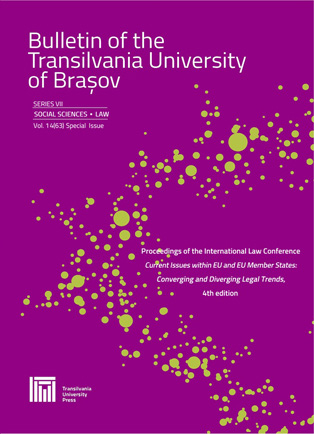Fiscal Sovereignty vs. Harmonized Fiscal Policies. Application of Split VAT in Romania – A Failed Project. Comparative Law
Fiscal Sovereignty vs. Harmonized Fiscal Policies. Application of Split VAT in Romania – A Failed Project. Comparative Law
Author(s): Ramona CiobanuSubject(s): Law, Constitution, Jurisprudence, Law on Economics, Fiscal Politics / Budgeting, EU-Legislation, Comparative Law
Published by: Editura Universitatii Transilvania din Brasov
Keywords: tax sovereignty; harmonized rules; direct taxes; indirect taxes;
Summary/Abstract: Each Member State of the European Union establishes its own fiscal policy, under its sovereignty, according to its interests. Nevertheless, requirements such as the proper operation of the Single Market, the protection of fair competition, the fight against aggressive tax planning and against tax evasion, the stability of the European Economic Area have led to the adoption of European rules on the harmonization of the Member States’ tax laws, with an emphasis on indirect taxes. Implementation mechanisms have been established so that non-compliance with them leads to the inapplicability of the non-harmonized internal rules. This is also the case for Romania's unsuccessful attempt to apply split VAT, while other Member States apply this method of VAT payment/collection.
Journal: Bulletin of the Transilvania University of Braşov, Series VII: Social Sciences and Law
- Issue Year: 14/2021
- Issue No: Suppl
- Page Range: 31-36
- Page Count: 6
- Language: English

